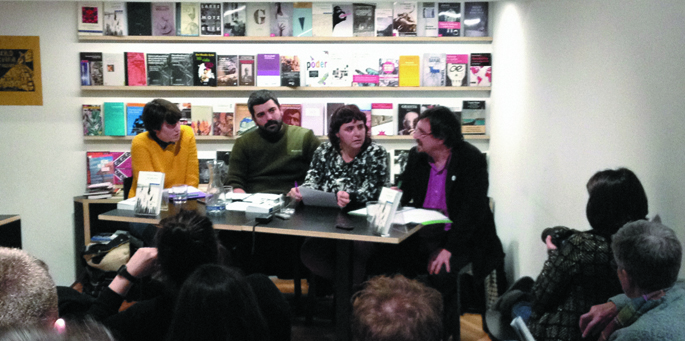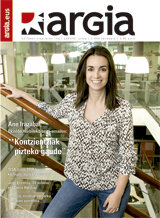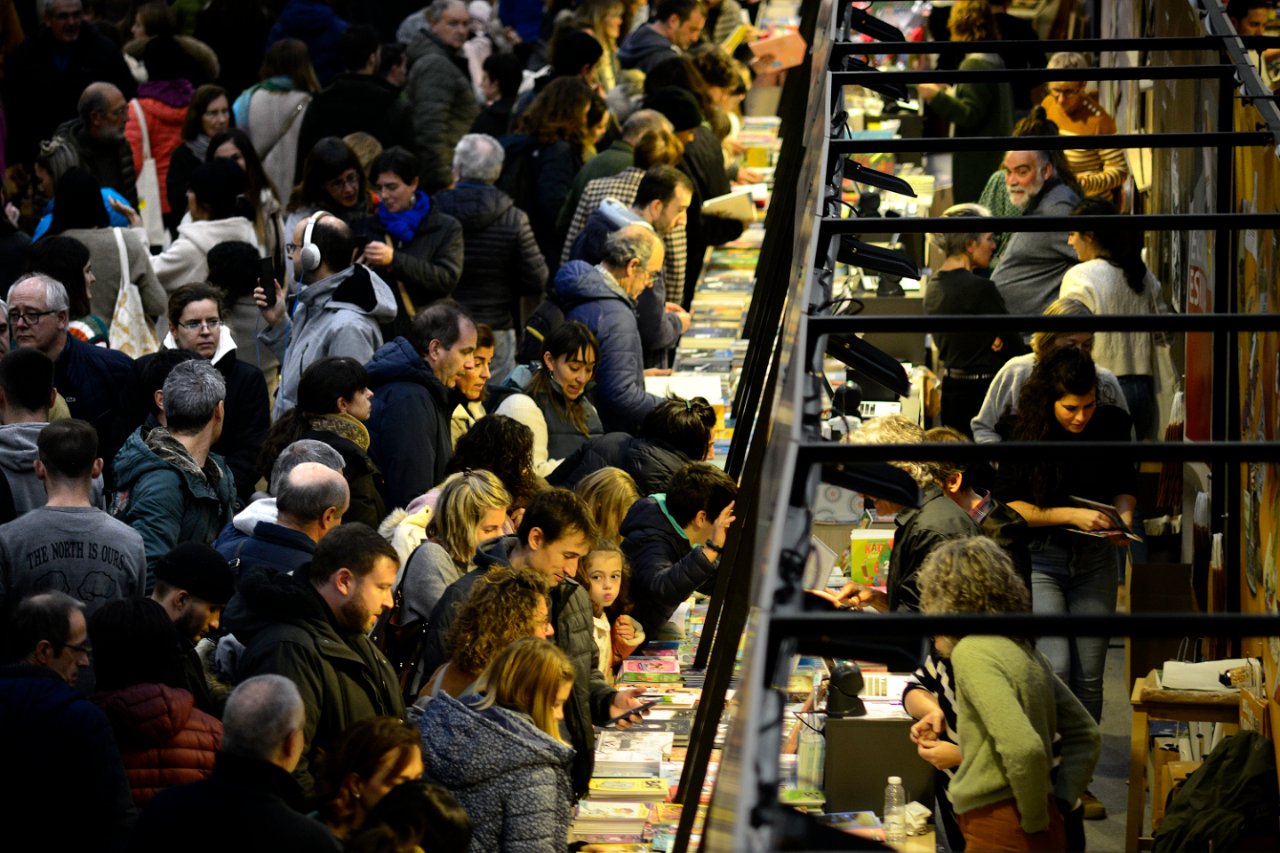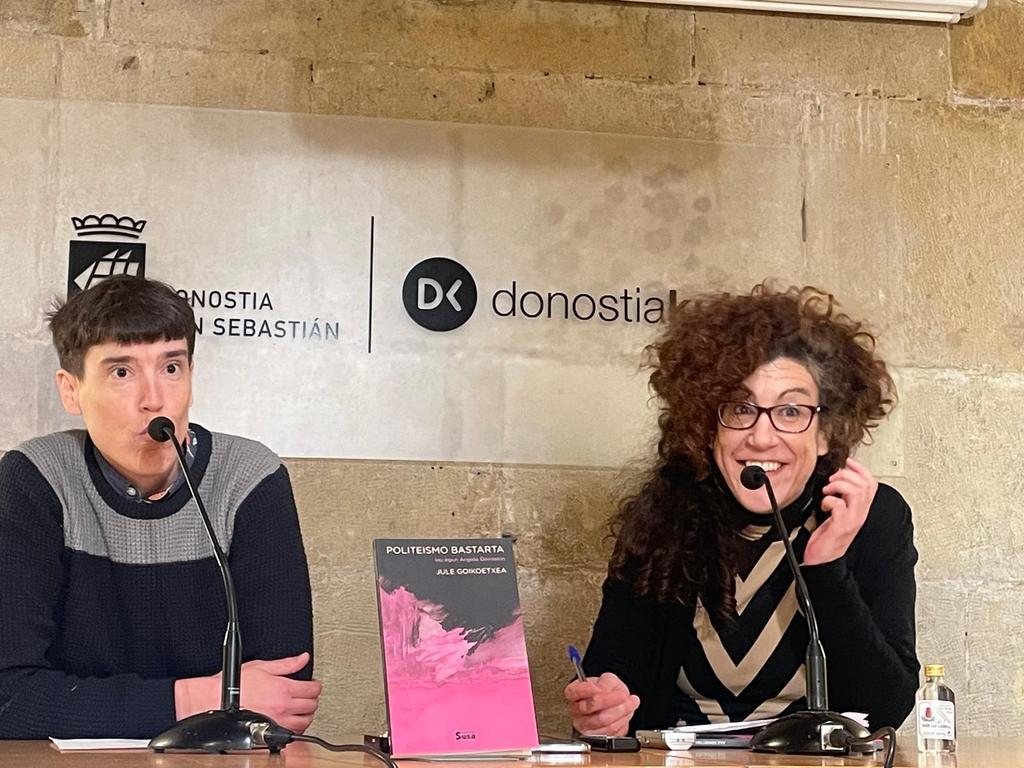Don't criticize me how I'm going to go to the plaza

The Kaxilda library in Donostia looks like a concert for the number of people who have met on the afternoon of February 4. Among all the things that need to be done in the world and all the plans that, out of fear of the cold, can be abandoned, it is nothing easy. Ibon Egaña has just published Etxeberria’s Izan gabe denaz essay, which has the merit of being a writer. Taking advantage of their presentation, they have organised a round table in which Leire López Ziluaga talks about the role of literary critique (synth), Iratxe Retolaza (guitar) and Egaña (voice).
Zaldua refers to the “call of the homeland”, that is, to the criticism made to “build the Basque literature”. And in this sense, it should be enough to point out the book that should be read, to question the work that has received great attention. Retolaza responds with a puncture that he does not understand criticism as a book catalog that needs to be read or not, but as a discourse that generates questions. And then we hear for the first time Egaña frontman’s voice, saying that at least as far as the field that has worked in the book – the criticism that is published in the media – is concerned, the assessment of the works is one of the tasks of the press commentator.
The quartet has touched on some classics, among other topics, the topic of pendular attitude that has been criticized in Basque. How it has gone from giving importance to form alone or mainly to a more sociological criticism today. And everyone has agreed on the need for the medium, although when the song is over it has not been very clear where the aesthetic and social dimension of a book can be articulated – we imagine that this is something that the critic periodically negotiates with himself and with the context in which he lives.
A piece of his last album, Egaña, has also come to the table, which has remembered that the criticisms are those that have been expressed lately on Twitter about books. Not only that, Zaldua adds from the corner of the table: there are also reviews of books that are advertised by you and then never arrive.
Therefore, does this practice have problems of legitimacy that cannot be called an occupation? What gives the critic legitimacy? Patxi López has taken the team to the last steps: Retolaza believes that the relationship with certain writers, the “crews” – understood as a group that moves around literature – or a certain community – for example, social or political movements – contribute to the achievement of a position. Also the negative reviews, Egaña adds, if you enter “with someone”.
This last issue has been the starting point of a bis: if negative criticism of books in Basque is possible. Well, according to and where, according to and to whom, everyone agrees on that. The Basque literature will exist when it is able to become self-critical of itself. But we're far from the weather to do that. Egaña stresses in his book that most of the criticisms that are published are positive or very positive. In the universe do we have a literature that does not have the same or have we imposed censorship prior to the “Hasty Law”, namely why?
Joan Tartas (Sohüta, 1610 - date of unknown death) is not one of the most famous writers in the history of our letters and yet we discover good things in this “mendre piece” whose title, let us admit it from the beginning, is probably not the most commercial of the titles... [+]















ilbeltza-(1).jpg)









.jpeg)